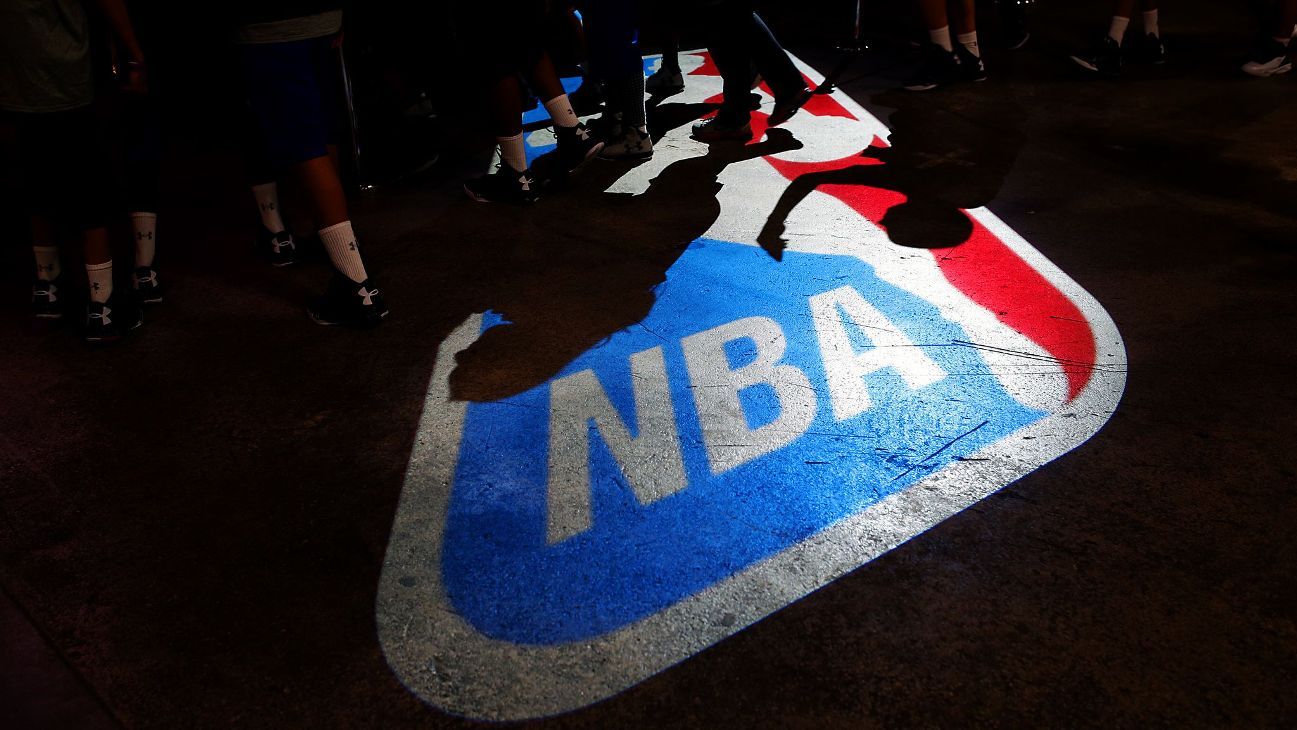The NBA is pursuing the implementation of an upper salary limit in its negotiations on a new collective bargaining agreement with the National Basketball Players Association, a systematic change that has been met with significant union resistance.
In the wake of large market contenders Golden State, Brooklyn and the LA Clippers running up massive payrolls and luxury tax penalties, the NBA is proposing a system that would replace the luxury tax with a hard limit that teams could not exceed to pay salaries, sources said.
The league’s proposal has been met with the firm resistance of the NBPA, to the point of the union considering it a non-starter in discussions, sources said.
Sides often use the early part of negotiations to float wish lists, and that could be what’s happening with the NBA’s proposal – as opposed to the buildup of a hardline stance that could ultimately lead to a work stoppage.
The NBA and NBPA are working to reach an agreement prior to a December 15 deadline that each side has to give notice on opting-out of the current CBA in December of 2023. The seven-year CBA expires after the 2023-2024 season.
The NBA believes that the current system fails to provide a level enough playing field to make more of the 30 teams competitive, and contends that the spending disparity of top teams has made the imbalance ultimately unsustainable, sources said. The league is pitching the idea to the union that a more competitive league will deliver higher revenues – and higher salaries amid the league’s 51-49 percent share of Basketball Related Income with the players.
Beyond the NBPA, there is also skepticism among smaller NBA marketplaces who worry that an upper spending limit would fail to create the competitive parity that the league is hoping to achieve, instead causing well-constructed smaller market teams to have to break up cores of contending talent despite a willingness to enter into the luxury tax, sources said.
Commissioner Adam Silver and the NBA’s Labor Relations Committee, including Charlotte owner Michael Jordan and Golden State owner Joe Lacob, has held several meetings with the union, which is under the leadership of new executive director Tamika Tremaglio and president CJ McCollum of the New Orleans Pelicans.
In the system now, teams can re-sign their own players and add salary in free agency through various exceptions to exceed the salary cap. The NBA’s proposed system change would end luxury tax payments that are shared with many smaller market teams, requiring the league to find a new mechanism for revenue sharing, sources said.
Twenty of NBA 30 teams are currently below the luxury tax threshold of $150.3 million — with 10 teams projected to pay a league-record $697 million in luxury tax penalties in the 2022-2023 season. Among them, 61 percent of that shared among the Golden State Warriors ($176.5 million), the Clippers ($145 million) and the Brooklyn Nets ($108.9 million).
Those three teams contributed to 73 percent of the luxury tax penalties in 2021-2022.
Among the other top priorities in collective bargaining talks for the league, sources said:
• Finding mechanisms to incentivize top players participating in more regular season games, creating crisper competition and greater value in the league’s media rights deals.
• Working on a “smoothing” plan to incrementally add in the windfall escalation of revenue in the league’s looming media deal, which would avoid a repeat of the cap spike in 2016 that disproportionally rewarded one class of free agents and selected teams.
• To end the “One-and-Done” early entry rule and allow high school players back into the NBA Draft, the league wants a requirement that player agents can no longer pick and choose the teams with whom they supply prospects physicals and medical information. The NBA also wants some minimal requirements around presence and participation in the draft combine.
Discussions are expected to become more frequent between now and the December 15 date to declare notice of an opting of the current deal in December of 2023, and there’s always the possibility that deadline could be extended should the sides believe they’re making progress.
ESPN Front Office Insider Bobby Marks contributed to this story.
